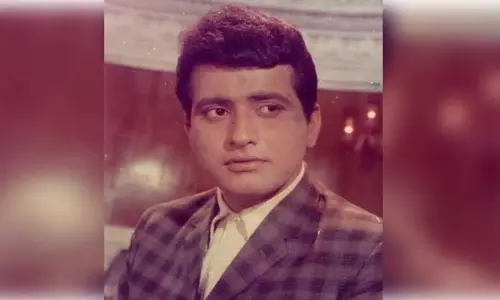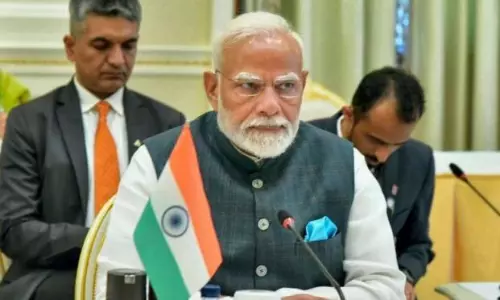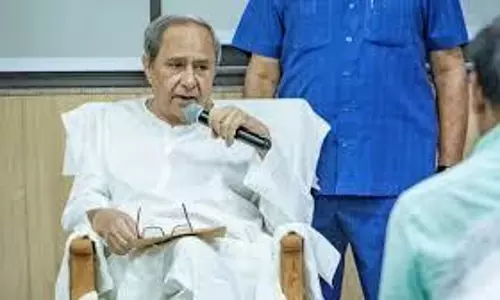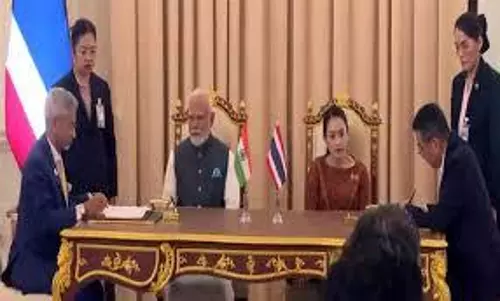
Senior advocates express ‘serious concern’ over judge’s ‘stand by words’ against 'Muslims' reply
text_fieldsResponding to a letter from Justice Shekhar Kumar Yadav to the Allahabad High Court Chief Justice, defending his remarks and saying ‘he stands by his words’ against Muslims during a VHP event, thirteen senior advocates have addressed a letter to Chief Justice of India Sanjiv Khanna, urging him to initiate suo motu action against the judge.
The letter highlights Justice Yadav's comments, which have sparked widespread criticism for being anti-Muslim and contrary to constitutional values.
Justice Yadav’s remarks, made at an event organised by the Vishva Hindu Parishad (VHP) within the Allahabad High Court premises, have been described as hate speech. During his address, Justice Yadav endorsed the implementation of a Uniform Civil Code but used derogatory language, referring to Muslims as “kathmulla” and suggesting that Muslim children are less likely to be tolerant or generous due to their early exposure to violence through the slaughter of animals. His speech drew sharp criticism for its divisive rhetoric, undermining the impartiality expected of a judge.
The controversy deepened when reports indicated that Justice Yadav justified his remarks despite the backlash, asserting his right to express such views. His speech, laden with communal overtones, spoke of “our Gita” versus “your Koran,” and made contentious statements about the religious practices of Muslims, framing them in a negative light.
The senior advocates' letter to the CJI outlines several points of contention regarding Justice Yadav’s conduct and statements. It underscores the fundamental role of the judiciary as a guardian of constitutional values, including equality and fraternity. The letter argues that Justice Yadav’s speech violates these principles by promoting enmity and religious intolerance, thus eroding public confidence in the judiciary’s impartiality.
The letter recalls that Justice Yadav’s appointment to the High Court had been previously opposed by then Chief Justice of India Dr. D.Y. Chandrachud, who cited concerns over Yadav’s limited work experience, his association with the Rashtriya Swayamsevak Sangh (RSS), and his proximity to a BJP Member of Parliament. These concerns were compounded by the ideological leanings evident in his recent remarks.
The letter references Sections 196 and 302 of the Bharatiya Nyaya Sanhita (BNS), which pertain to promoting enmity between different groups and deliberately wounding religious feelings. The advocates argue that Justice Yadav’s speech fits the criteria for hate speech under these sections. They point out that the remarks were not just offensive but potentially harmful to communal harmony, with the capacity to incite hatred and division.
The advocates also cite the Supreme Court’s judgement in Amish Devgan v. Union of India & Others (2021), which defines hate speech as language that offends community sensibilities and provokes anger or alarm. They contend that Justice Yadav’s comments fall squarely within this definition, raising questions about his suitability to serve as a judge.
The advocates have urged the CJI to consider the gravity of Justice Yadav’s actions in the context of judicial propriety and the constitutional mandate to uphold secularism and equality. They draw parallels with past instances where judicial conduct was scrutinised, such as the case of Justice V. Ramaswami, to emphasise the importance of maintaining public confidence in the judiciary.
The letter concludes with a call for action, suggesting that Justice Yadav’s remarks warrant serious consideration and potential consequences to preserve the integrity of the judicial system. The advocates argue that failing to address such issues would set a dangerous precedent, undermining the judiciary’s role as an impartial arbiter of justice.
The incident raises broader questions about the accountability of judges and the mechanisms in place to address breaches of conduct. It highlights the delicate balance between judicial independence and the need for oversight to ensure that judges adhere to constitutional values and ethical standards.
The controversy surrounding Justice Yadav’s remarks also underscores the challenges of navigating religious sensitivities in a diverse society. It calls attention to the judiciary’s critical role in fostering inclusivity and safeguarding the rights of all citizens, irrespective of their religious or cultural backgrounds.
The letter from the senior advocates to the CJI reflects a significant moment of introspection for the judiciary. It signals a collective demand for accountability and adherence to constitutional values, reinforcing the judiciary's responsibility to act as a bulwark against divisiveness and discrimination.

















